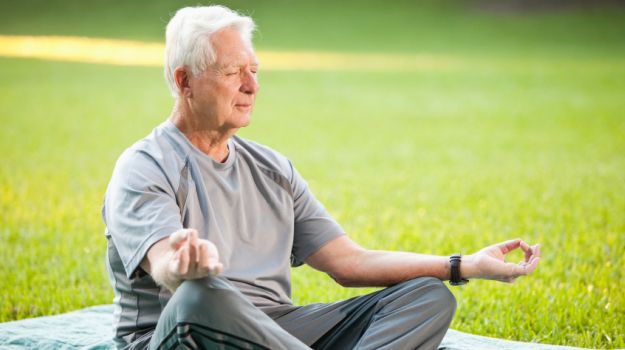A major challenge for health care providers is how to help the veterans alleviate chronic pain that will last a lifetime. A new study suggests that practice of meditation may help veterans to relieve themselves from chronic pain."Meditation allows a person to accept pain and to respond to pain with less stress and emotional reactivity. Our theory is that this process increases coping skills, which in turn can help veterans to self-manage their chronic pain," said lead author Thomas Nassif from American University.Musculoskeletal pain conditions are the most frequently diagnosed medical issue, exceeding any other medical and psychological concern. Chronic pain is also found in most combat veterans who sustained a traumatic brain injury.
The pilot study, published in Military Behavioural Health, consisted of four male veterans who received iRest meditation treatment, and five who did not. The participants of the study served in combat and returned to the US with chronic pain and moderate TBI.The participants attended meditation sessions twice weekly at the D.C. Veterans Affairs Medical Center and were given iRest recordings to engage in self-practice as well. By the end of eight weeks, the study participants had acquired useful mindfulness skills that empowered them to use meditation as a tool to help manage their pain, Nassif stated."In many cases, primary care physicians are the ones expected to help individuals overcome their chronic pain," Nassif said."One of the most commonly used tools we have in our toolbox is opioids. Veterans in this study, and many who come to meditation sessions, find that opioid medication is a short-term solution. Meditation could be a useful tool to help veterans manage their pain over the long term."
The pilot study, published in Military Behavioural Health, consisted of four male veterans who received iRest meditation treatment, and five who did not. The participants of the study served in combat and returned to the US with chronic pain and moderate TBI.The participants attended meditation sessions twice weekly at the D.C. Veterans Affairs Medical Center and were given iRest recordings to engage in self-practice as well. By the end of eight weeks, the study participants had acquired useful mindfulness skills that empowered them to use meditation as a tool to help manage their pain, Nassif stated."In many cases, primary care physicians are the ones expected to help individuals overcome their chronic pain," Nassif said."One of the most commonly used tools we have in our toolbox is opioids. Veterans in this study, and many who come to meditation sessions, find that opioid medication is a short-term solution. Meditation could be a useful tool to help veterans manage their pain over the long term."
Advertisement






